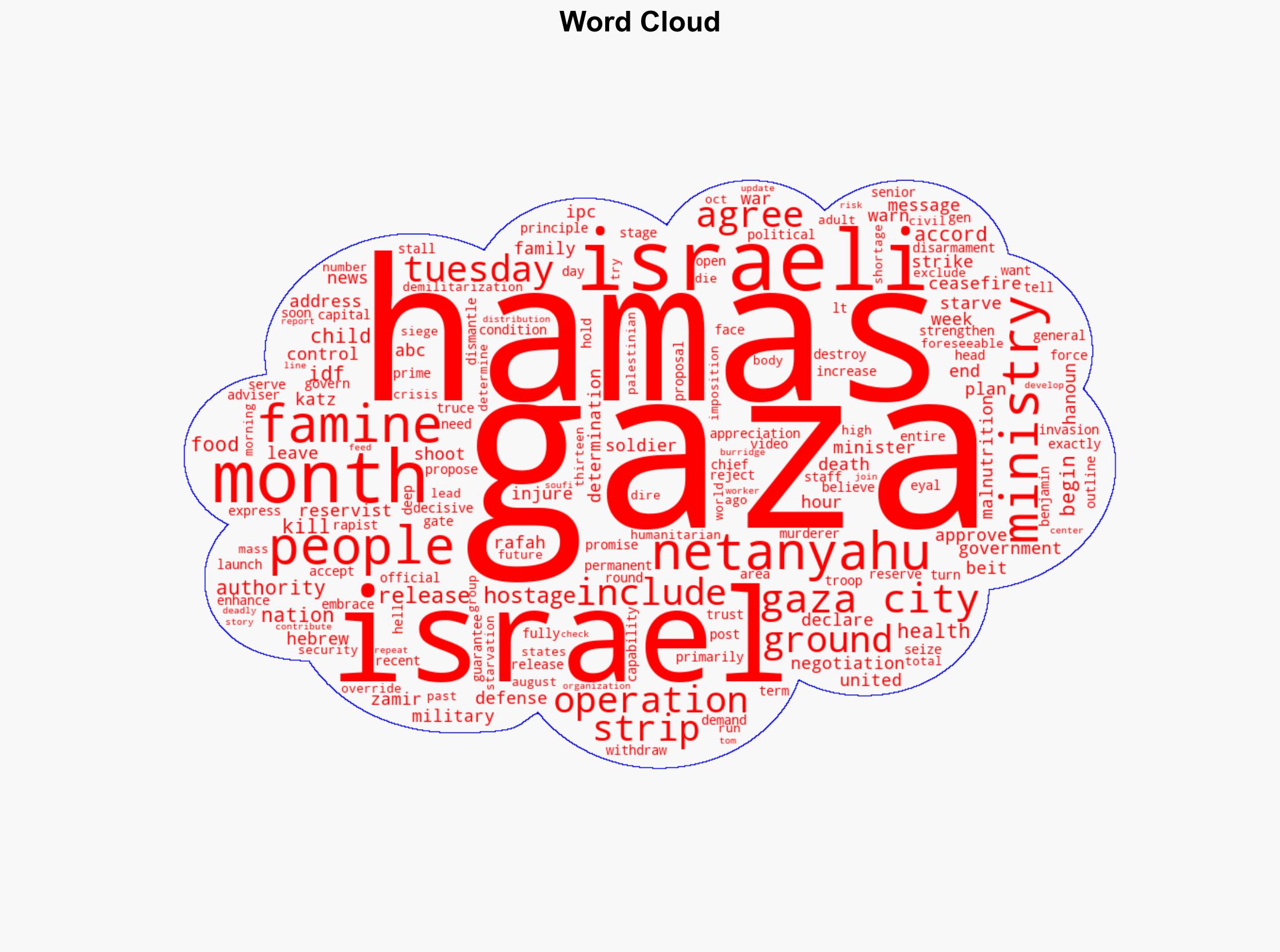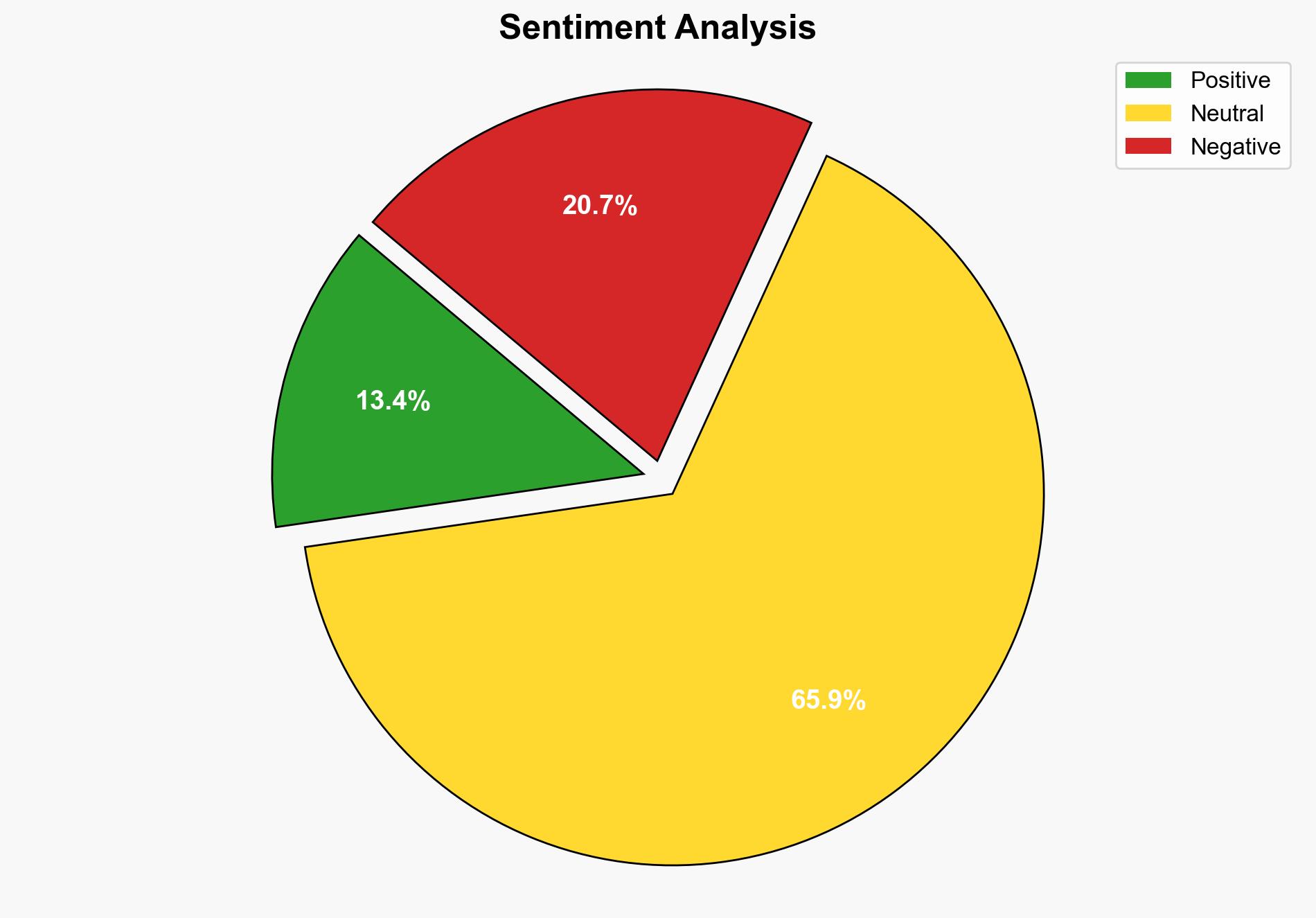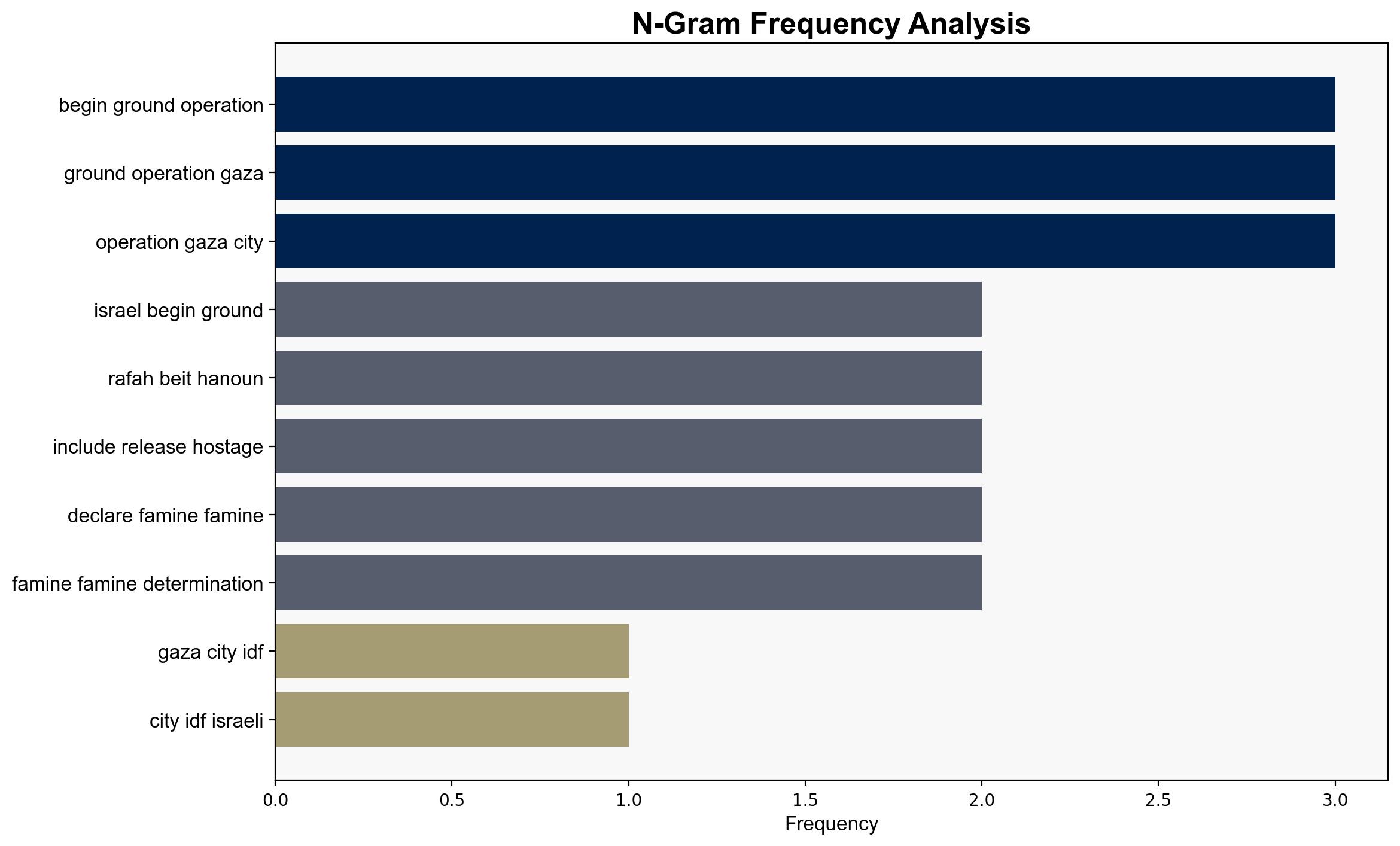Israel begins ground operation in Gaza City IDF says – ABC News
Published on: 2025-09-02
Intelligence Report: Israel begins ground operation in Gaza City IDF says – ABC News
1. BLUF (Bottom Line Up Front)
Israel has initiated a ground operation in Gaza City, signaling a potential escalation in the conflict with Hamas. The most supported hypothesis is that Israel aims to dismantle Hamas’ military and political capabilities while securing the release of hostages. Confidence in this assessment is moderate due to conflicting reports about ceasefire negotiations and humanitarian conditions. Recommended action includes diplomatic engagement to de-escalate tensions and address humanitarian needs.
2. Competing Hypotheses
1. **Hypothesis A**: Israel’s ground operation is primarily aimed at dismantling Hamas’ military infrastructure and securing the release of hostages. This hypothesis is supported by statements from Israeli officials and the strategic objective to weaken Hamas’ control over Gaza.
2. **Hypothesis B**: The operation is a strategic maneuver to pressure Hamas into accepting a ceasefire on Israel’s terms, including the release of hostages and demilitarization of Gaza. This view is supported by the ongoing negotiations and the Israeli government’s outlined principles for ending the conflict.
3. Key Assumptions and Red Flags
– **Assumptions**: It is assumed that Israel has the capability and international support to sustain a prolonged ground operation. Another assumption is that Hamas will respond predictably to military pressure.
– **Red Flags**: The humanitarian crisis in Gaza could exacerbate regional instability. There is also a risk of misinterpretation of Israel’s intentions by international actors, potentially leading to broader conflict.
– **Blind Spots**: The internal dynamics within Hamas and potential external support from other regional actors are not fully understood.
4. Implications and Strategic Risks
The ground operation could lead to significant civilian casualties, worsening the humanitarian situation and potentially drawing international condemnation. There is a risk of escalation into a broader regional conflict if neighboring countries become involved. Economically, prolonged conflict could disrupt regional trade and energy supplies. Cyber and psychological warfare tactics may also intensify, impacting public opinion and morale on both sides.
5. Recommendations and Outlook
- Engage in diplomatic efforts to mediate a ceasefire and ensure humanitarian aid reaches affected populations.
- Monitor regional actors’ responses to prevent escalation and maintain regional stability.
- Scenario Projections:
- **Best Case**: Successful negotiation leads to a ceasefire and release of hostages, with minimal further escalation.
- **Worst Case**: The conflict escalates, drawing in regional actors and leading to widespread instability.
- **Most Likely**: Continued military operations with intermittent negotiations, resulting in a protracted conflict.
6. Key Individuals and Entities
– Benjamin Netanyahu
– Eyal Zamir
– Israel Katz
– Hamas leadership
7. Thematic Tags
national security threats, cybersecurity, counter-terrorism, regional focus




